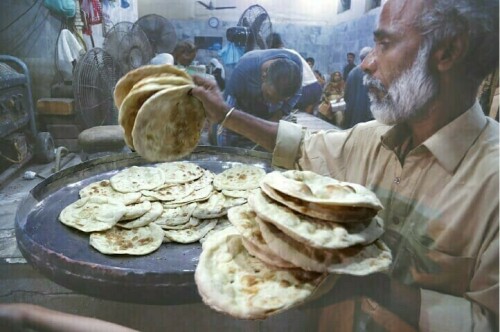When a fruit seller stopped nearby, Kiran asked for grapes. She insisted that her mother buy her some because she hadn’t eaten any in a long time, and Naziraan Bibi* promised that she would - when she finally receives her salary.
Naziraan Bibi is a sanitation worker at the Capital Development Authority (CDA). She has worked there for 18 years, and is now having trouble running her home because her salary has been delayed for a month. She spoke to Dawn on condition of anonymity – as did other CDA workers – out of fear that she may lose her job.
She explained that workers’ salaries had been delayed for months now, but as contractual employees with no job security, no one is willing to speak up.
Naziraan has four children and lives in a two-room rental. Her husband is physically disabled and has difficulty walking, and works as a sweeper at a clinic in G-8. With her salary delayed, she said it had gotten difficult for her to manage her kitchen and other expenses.
She and her colleagues have to borrow money from a local grocer to put food on the table, she said. “As the due amount increases, so do the grocer’s threats to stop the supply.”
Another sanitation worker, 53-year-old Riffat*, comes to G-8 from H-9 for work. She is a widow with seven children – two of whom are married and live separately, but do not earn enough to help their mother. Her remaining children live with her, in a one room house.
Riffat told Dawn she works from 6:15am to 2pm and receives Rs15,000 a month, but she has never been paid on time. While talking about her children, she said her younger daughter had been in ninth standard but discontinued her education and began working as a maid because Riffat couldn’t afford to pay for her studies.
“We are not even paid a transport allowance, so we come to work in a cab shared by four people. At the end of the month it becomes hard to get to work because there is no transport fare available,” she added.
Mushtaq Masih* says he has done his job - cleaning the roads and streets of F-8 - for so long that he does not remember when he started.
He also has a second job at a commercial building. But Mr Masih is worried about his age; he is nearing 60, and soon his contractor will ask him to leave his job because of his age.
“What will I do then,” he asked rhetorically. The thought keeps him up at night.
“With age I have become weak and I face many health problems because we have to work the whole day in the dust. But I have no other choice; I have to continue my job to feed my family.
“I have three daughters – one is married and the other two work as cleaners at several houses in F-8. My wife is sick and cannot work, but before this she also spent her entire life working,” he told Dawn.
He too said workers were not being paid on time, and identified a number of other problems as well. Workers do not get days off, he said, and if they do have to take a day off, it is deducted from their salary. He added that occasionally the contractor makes them do extra work on Sundays, which they are not paid for.
Sanitation workers also do not receive healthcare facilities, even though many develop allergies because of the nature of their work.
All three workers Dawn spoke to also said that the CDA’s contractor cuts their pay by Rs1,000 – paying then Rs14,000 a month instead of Rs15,000 - as ‘commission’ for giving them their jobs.
Director Sanitation Sardar Khan Zimri told Dawn that the CDA pays the contractor Rs15,000 per worker, and added that he had not received any complaints that workers were not being paid their full salaries.
Mr Zimri also admitted that for technical reasons, the CDA had not paid the contractor for two months but said they would hopefully clear the dues soon.
“The sanitation department is under the Metropolitan Corporation Islamabad, but the finance department is in the CDA. Therefore they face payment issues many times,” he said.
He added that the CDA could only take action if a worker submits a written complaint against the contractor.
Human rights activist Dr Farzana Bari said most sanitation workers are Christians, which is a form of social discrimination against them.
“We find advertisements in newspapers about sanitary jobs that specify that only Christians can apply. This needs to be stopped and the government should provide them with equal opportunities to service as citizens of Pakistan,” she said.
She added that the CDA should hire workers directly to help minimise the problems they face, and urged the CDA and the government to give workers regular jobs to ensure their protection under labour laws regarding the minimum wage, healthcare, pensions and leave.
Human Rights Commission of Pakistan board of directors member Nasreen Azhar told Dawn the commission had not been aware of this matter, but would write to the CDA to formally take it up.
She explained that the trend of contractual hiring in the CDA and other public and private organisations grew to avoid fulfilling labour laws that protected labour rights.
“This trend needs to be discouraged, for the provision of basic human rights to all citizens of Pakistan regardless of their religion,” she said.
Names have been changed to protect identities
Published in Dawn, November 4th, 2018
















































Dear visitor, the comments section is undergoing an overhaul and will return soon.